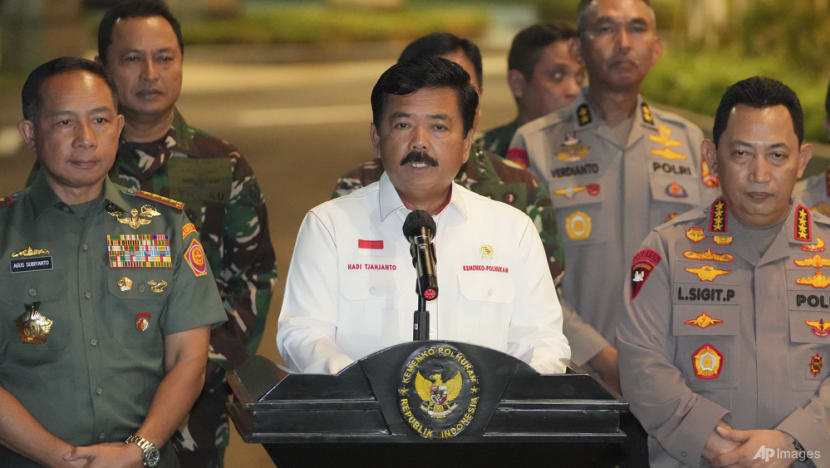New 'Cyber Force': Indonesia to launch fourth military branch to combat online threats and attacks
The new cyber military unit will operate alongside the Indonesian Army, Navy and Air Force and comes after government offices were targeted by the worst cyber attack in years.


This audio is generated by an AI tool.
JAKARTA: Indonesian President Joko Widodo and President-elect Prabowo Subianto have approved the formation of a new Cyber Force which will become the fourth branch of the Indonesian Military (TNI), enabling the country to “respond effectively to cyber attacks from abroad”.
The new cyber military unit will operate alongside the Indonesian Army, Navy and Air Force and is expected to be a priority for Mr Prabowo’s incoming Cabinet, officials said.
Sharing more details following a parliamentary meeting in Jakarta on Monday (Sep 23), Coordinating Minister for Political, Legal, and Security Affairs, Hadi Tjahjanto said that it was crucial for Indonesia to defend itself against foreign cyber threats.
“In modern warfare, cyber warfare is a central focus as it requires strategies to handle proxy wars, asymmetric conflicts and propaganda battles,” Mr Hadi told reporters, underscoring the need for a dedicated specialised military unit in tackling cyber threats.
In June, Indonesian government offices were hit by the worst cyber attack in years, disrupting immigration services and affecting airport operations for days. Among the agencies targeted were more than 40 government bodies and key ministries.
“The cyber branch will be responsible for psychological operations, influencing minds to ensure we can succeed in this new form of warfare,” Mr Hadi said, adding that the new military unit is expected to conduct daily cyber patrols and implement security measures.
Mr Prabowo, who has had a strong interest in cyber security developments, has endorsed the plan, Mr Hadi added.
Other nations have already made strides in developing cyber forces, Mr Jokowi pointed out. These include the People’s Liberation Army Cyberspace Force in China, Germany’s Cyber and Information Domain Service, the Norwegian Cyber Defence Force and the Digital and Intelligence Service in Singapore.
While the formation of a new cyber military unit marks a significant step for Indonesia, officials say that it will prove ineffective without proper funding or defence equipment. “It’s not enough to have a large cyber military force if they lack the necessary defence equipment,” said Lodewijk Freidrich Paulus, Deputy Speaker of the House of Representatives during the parliamentary meeting in Jakarta. “Without adequate funding, the Cyber Force will consist only of human resources without the technology to support them.”
Cyber defence equipment is far more advanced than regular devices like cell phones, noted Mr Lodewijk. “This isn’t just about finding people, which is already challenging because we need specialists,” he said. “The equipment they use is even more crucial.”
He also warned that Indonesia would lag behind other countries in the cyber security domain if it did not consistently invest in defence technology. “If we don’t allocate enough resources, our data will remain vulnerable,” Mr Lodewijk said, also stressing the importance of investing in satellite systems to bolster cyber defence.
Mr Lodewijk concluded that cyber technology development was costly but necessary and much similar to creating military special forces.
“The tools must be sophisticated, even if the team is small. It’s better to have advanced equipment with fewer personnel than a large force without the right tools,” he said.













